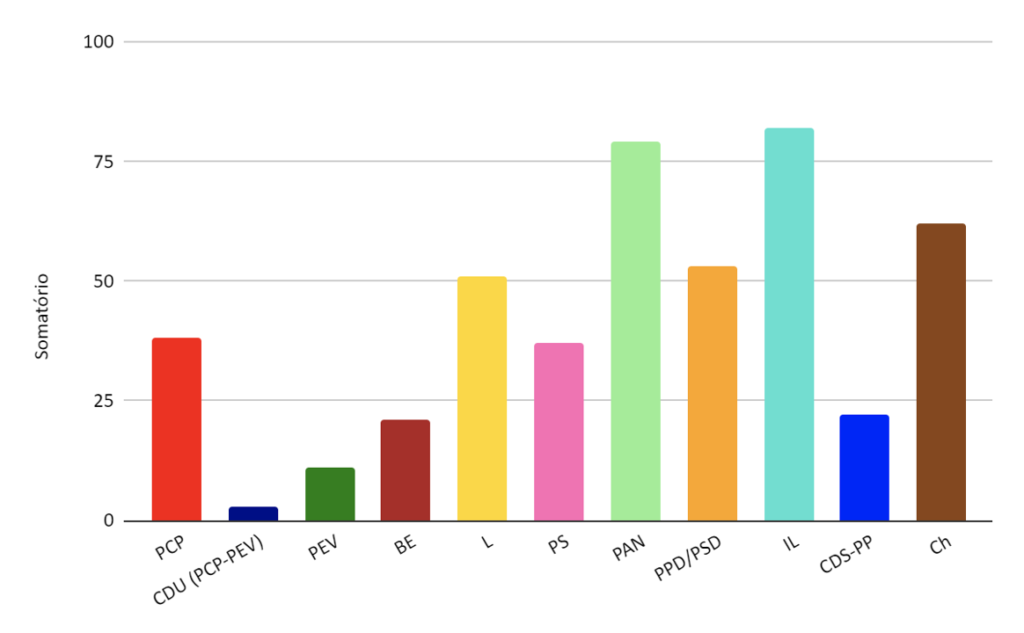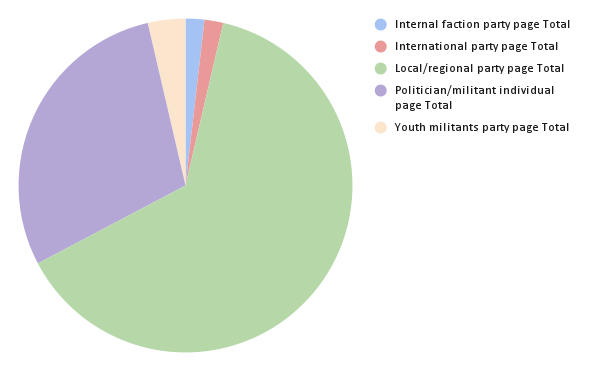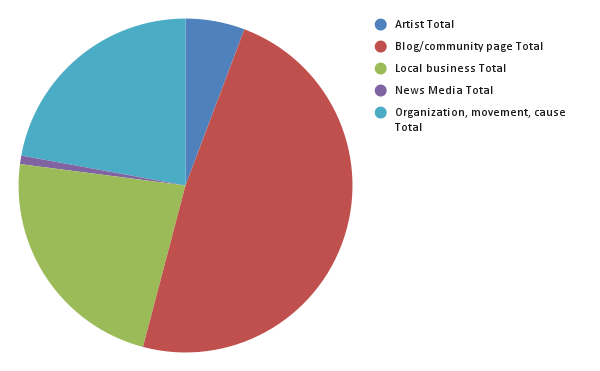Facebook Pages as Non Official Political Actors in the Electoral Year 2019
Jorge Martins Rosa
XII SopCom Congress («Communication and Disruption»), thematic session «Political Disruption III: Digital Politics», Lisbon, April 12, 2022. Unpublished oral communication.
After some early signs in 2015, with the election of one member of the Portuguese parliament from PAN, in 2019 it was confirmed a trend towards the disruption of a parliamentary stability lasting almost two decades em 2019. Allegedly, it may have als been a disruption on the way of making political communication, not only due to the so-called right-wing populism but also, across the whole ideological spectrum, by the novelty of some issues in the agendas and by the consolidation of social network platforms as communication tools. For this oral communication, we gathered, with the Facepager tool, all posts and comments on official pages of parties with parliamentary representation after the 2019 elections, spanning a period of 18 months (1 July 2018 to 1 January 2020) which covers the two main electoral acts (European and Legislative) that took place in that year. The data amounts to above 9,000 posts, more than a million reactions and around 135.000 comments. In the case of comments, we have noticed that some, though with a total of less than 500, came from other pages instead of from individual profiles (which are anonymized by Facepager).

Our main goal for this oral communication was to follow the lead of those pages, which in a preliminary categorization can be classified between semi-official, if they indirectly represent a political party (local or regional delegations, candidates and militantes self-identified as such), and unofficial (all others). Which pages are these, how can they be further categorized (namely considering their political positioning), which kind of connection they have (if at all) to the official pages where they commented, what is their activity (if any) when posting instead of commenting in other pages. To attain that objective, we used a mixed methodology, both with a quantitative dimension (statistical analysis and visualization of data) and qualitative (categorization, analysis of publications and comments.
Among other results, we demonstrate that: 1) the activity of these pages is, with rare exceptions, reduced and barely generating engagement; 2) only some semi-official actors seem to have an articulated communication strategy in line with the official ones (i.e., the party pages); 3) the interaction with the official actors is sparse and unsystematic, though in several cases motivated by political issues, for example environmental causes, which are also the main reason behind the creation of these pages, either unofficial or semi-official.

